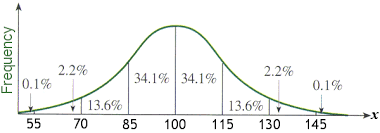For two weeks now I've been musing about how the awful performances of first
FSU, then
Oregon proved that standardized testing is dubious. The Seattle Seahawks prove it all the more.
The point is this--We all agree that football games will generate a decisive outcome. By definition, that outcome is based on the number of points each team scores. But that outcome that day proves nothing more than who had more points on that particular occasion. It doesn't prove that one team is actually "better" than the other, except by definition--they won.
The same is true of standardized tests. They most clearly show what a student does on that particular test. We make inferential assumptions from the test scores, but those are more dubious than the one reliable observation about actual scores on the specific test.
Take the Seahawks beating the Packers in the NFC championship game. That particular outcome (Seattle winning) was predicted before, and probably "should have" held. And the chances were very slight that Green Bay would so dominate so much of the game, yet they did. Further, the chances that the Seahawks would still recover to win as late as they did were also very small. And yet they did. The chances that Seattle could do that again are so negligible as to be zero. And yet they did.
They did win that particular game, though at 55 minutes they probably still shouldn't have. But the thinking prior to the game predicted--in general--a Seattle win, in "the next, but yet-to-be-played" contest. But that prediction means nothing against the actual outcome--the concrete result we all agree to observe.
The point is that snapshots in time are, more than anything, measures of what is happening precisely at that moment. The further in time you move from that snapshot, the farther out--toward the tails--along a normal distribution curve you move. It's not quite how you use these curves, but think of the middle as the place where we discern the the actually observed outcome--the location of the snapshot called today's game. Accept this visual image, because the outcome of the game is--by definition--the most likely outcome (at the top of the curve). The winner is agreed upon at that time and place. Defining something called "better" team, over time or in the abstract, is speculative and therefore moves away from the center of the curve.

Sunday's game gives almost no insight into what happened 10 years ago, or what will happen in 10 years. While the "evidence" from the Seahawk-Packer contest earlier this season is closer in time, it didn't hold much predictive value for the Sunday's game--indeed, it doesn't even hold much retrodictive value, either. Likewise, this year's games will hold little predictive power for next year's games. The snapshot called "next year's game" will show what was happening at that time--what will be, or will have been happening....
Of course, the even more fundamental issue is that a football game creates clarity--one side wins and one side loses. And we accept that as defined by the rules. What such outcomes do not prove is who is the "better" team, in more subtle ways--or ways beyond that manner which is defined by the rules--than that binary result.
Standardized tests--unintentionally, no doubt--try to do the same thing. Students are rendered as either passed or failed, according to a snapshot taken in time. Using 8th grade standardized test scores to evaluate anything beyond what happened for that student on that day becomes increasingly speculative the further in time and farther in space that student moves away from that day's test.
This is probably a function (at least in some degree) of the limitations of such a binary measure of a person, who, by his/her very nature, fluctuates at least modestly in the performance of tasks. Furthermore, people are good at different things, some of which are not assessed by the current standardized tests. Like pointing out that the Seahawks have the more colorful uniforms, though, if we are choosing to focus on a set of specific indicators, those other measures of value and performance won't weigh in a student's or team's favor.
The point is that the standardized test process tries to reify something intangible and variable (learning) into a concrete "thing" that can measured and that we can call education. That's like saying that the Seahawks are better people, kinder, cooler, nicer, whatever, because they won on the particular measure of importance on Sunday. You know such things can't be true...just look at all those winning Raider teams from the 1970s and 1980s.